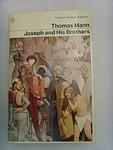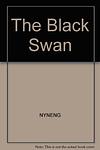Thomas Mann
Thomas Mann was a German novelist, short story writer, and essayist. He is best known for his series of novels and novellas, including 'Buddenbrooks', 'The Magic Mountain', and 'Death in Venice'. Mann was awarded the Nobel Prize in Literature in 1929.
Books
This list of books are ONLY the books that have been ranked on the lists that are aggregated on this site. This is not a comprehensive list of all books by this author.
-
1. The Magic Mountain
In this novel, the protagonist, a young, ordinary man, visits his cousin at a tuberculosis sanatorium in the Swiss Alps. Intending to stay for only a few weeks, he ends up remaining there for seven years, becoming a patient himself. The book explores his experiences and relationships with other patients and staff, delving into philosophical discussions on life, time, and the nature of disease. It also provides a vivid portrayal of the European society and intellectual life on the eve of World War I.
The 43rd Greatest Book of All Time -
2. Buddenbrooks
"Buddenbrooks" is a novel that chronicles the decline of a wealthy north German merchant family over the course of four generations. The narrative focuses on the fluctuating fortunes and internal struggles of the family, reflecting the societal changes and economic decline of the period. The family's personal and business relationships, their moral values, and their struggle to maintain social status are all explored against the backdrop of the changing political and social landscape.
The 149th Greatest Book of All Time -
3. Doctor Faustus
The novel is a reimagining of the Faust legend set in the context of the first half of the 20th century and the turmoil of Germany in that period. It tells the story of a composer who makes a pact with the devil, exchanging his soul for unlimited creative genius. The protagonist's life and work reflect the cultural and political journey of Germany leading up to World War II, providing a deep exploration of the individual's role in a society undergoing dramatic change. The novel is also a profound meditation on the nature of time, the art and the artist, and the destructiveness of human ambition.
The 153rd Greatest Book of All Time -
4. Death in Venice
"Death in Venice" is a novella that explores the life of Gustav von Aschenbach, a famous writer in his early fifties who embarks on a journey to Venice after experiencing a creative block. In Venice, he becomes obsessed with a beautiful Polish boy named Tadzio, whom he sees at the hotel where he is staying. Aschenbach's fascination with Tadzio becomes a metaphor for his own internal struggle with his repressed passions and his need for aesthetic beauty. The story culminates in Aschenbach's death as a cholera epidemic sweeps through Venice. His demise symbolizes the destructive power of his unfulfilled longing and his ultimate surrender to his repressed desires.
The 460th Greatest Book of All Time -
5. Joseph and His Brothers
This novel is a re-imagining of the biblical story of Joseph, known for his coat of many colors. The narrative delves deeply into the psychological aspects of each character, exploring their motivations, flaws, and virtues. The story covers Joseph's life from his early years in Canaan, through his betrayal by his brothers who sell him into slavery in Egypt, his rise to power in Pharaoh's court, and his eventual reconciliation with his brothers. The novel is a rich tapestry of dreams, myths, and rituals, blending biblical tradition with the author's own philosophical insights.
The 504th Greatest Book of All Time -
6. Stories Of Three Decades
"Stories of Three Decades" is a collection of short stories that spans the breadth of a renowned writer's career, offering a diverse range of narratives that reflect the social, psychological, and philosophical preoccupations of its era. The anthology showcases the author's mastery in exploring the human condition, with each story delving into themes of love, death, art, and the complexities of the modern world. Through a blend of realism and symbolism, the collection captures the tumultuous changes of the early 20th century and the timeless aspects of human experience, cementing the author's legacy as a pivotal figure in literary history.
The 2636th Greatest Book of All Time -
7. The Black Swan
Thomas Mann's bold and disturbing novella, written in 1952, is the feminine counterpart of his masterpiece Death in Venice. Written from the point of view of a woman in what we might now call mid-life crisis, The Black Swan evinces Mann's mastery of psychological analysis and his compelling interest in the intersection of the physical and the spiritual in human behavior. It is startlingly relevant to current discussions of the politics of the body, male inscriptions of the feminine, and discourse about and of women. The new introduction places this dramatic novella in the context of contemporary feminist and literary concerns, bringing it to the attention of a new generation of readers.
The 6744th Greatest Book of All Time -
8. Confessions Of Felix Krull, Confidence Man
The book is a satirical novel that follows the life of its charming and manipulative protagonist, a young man who rises from modest beginnings to a life of affluence and high society through his skills in deception and seduction. With a keen eye for exploiting the weaknesses of others, he embarks on a series of adventures and cons, assuming various identities and spinning elaborate tales to maintain his elaborate charades. The story, told as an autobiography, delves into themes of identity, social mobility, and the nature of truth, all while providing a humorous and critical look at the decadence of the European bourgeoisie.
The 7168th Greatest Book of All Time







